Clarence Fisher
Snow Lake, Manitoba, Canada
Blog: http://remoteaccess.typepad.com/
Presentation Title
“Globally Literate”
Bio
Clarence has been a classroom teacher from grades 1 – 8 for the past 13 years. He has been involved with the creation of technology curriculum documents and wrote his master’s thesis regarding the evaluation of these documents. Clarence has won several awards, including being named a Manitoba Middle Years Outstanding Educator, as well as one of Canada’ highest teaching awards, the Prime Minister’s Award for Teaching for his integration of technology into daily classroom life.
Description
What it means to be a literate person in our society is rapidly changing. We are passing through a sea change in the possibilities for online communication. Literacy is in a constant state of change. One thing this presentation will look at is how it has been constantly changing since the advent of the printing press. Blogs, wikis, podcasts, photo streams, and vlogs point the way to future types of communication; types that have been called ‘post – typographic.’ Yet we continue to favour print in classrooms over all other mediums. It is essential that we teach students new possibilities for accessing content using technologies such as RSS. We need to teach them to evaluate content for style and for truth in complex, multimedia electronic spaces. We also need to teach students about options they have for producing content. How do they learn to choose an effective medium in the midst of so many possibilities This presentation will be a Quicktime video (bascially an screencast illustrated with graphic examples and audio) showcasing the changes in literacy and showcasing the choices that students need to have for accessing, evaluating, and producing content.
Presentation
Video: http://k12online.wm.edu/K12Online-Fisher.mov
Podcast: http://k12online.wm.edu/K12Online-Fisher64.mp3


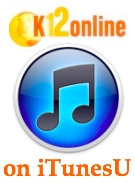

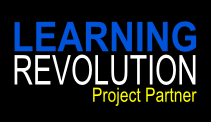
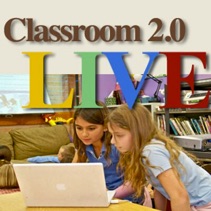
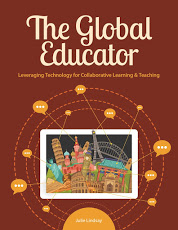
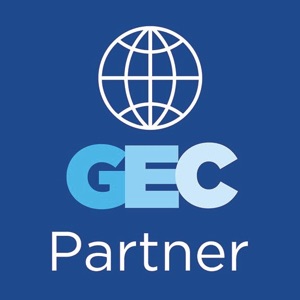
Pingback: The Thinking Stick
Well Said!!!! Thank you Clarence!! I have been trying to help my teachers understand this concept and now I have something to share that is so much more eloquently stated. As a technology integration specialist for my school I have often thought that my role has as much to do about literacy as it does technology. Thank you again…
…and to the conveners of the conference, I truly believe that the ideas, concepts, and skills, presented through this conference will impact many educators and an even greater number of students… Thank you!!!!
Clarence,
Listening to your lecture and hearing the history of literacy and the fact that it is changing – but it has always been and will still now change again- was good to hear. Also hearing that the skills needed have not changed but require a different approach also good to hear. I do sometimes fear that the skills needed by teachers is going to lead to a ‘haves’ and ‘have nots’ – but we will have to see how it goes – thanks again for the lecture I stayed the whole time in one go!!!
Your podcast essay was extremely powerful for me and struck several deep resonant chords. It raised a number of questions about what I and the others at my school are doing in our classrooms.As a teacher raised and trained in a pre-Internet world I have had to form skills on my own to deal with the ‘new’ technologies of Web 1.0 and then teach these skills to my students, but the tsunami of Web 2.0 technologies has truly overwhelmed me. Many thanks for your references to the other works, especially Vickie Davis. These were not only informative and useful, but when I followed them ‘back to their root sites’, I picked up alot of helpful insights too.
Pingback: Global Horizons » My Diigo Bookmarks 10/28/2006
Awesome presentation, Clarence! I recently wrote to Will Richardson asking if he knew of any research being done regarding literacy and Web 2.0, how literacy was being affected, whether the new technologies improved traditional literacy skills. Your presentation addressed those ideas so well. I can hardly wait to share this with our staff.
Thank you so much for a job well done!
Thanks Clarence! Your presentation has been inspiring. I’ll need to listen to it again as I spent a lot of time going to the blogs mentioned during your presentation. I was very interested in the history of literacy. Some great information to share with others.
Thanks for the kind comments. I thought that adding the piece focusing on some of the history of literacy would place the changes we are currently going through in some kind of context. It also shows us that people in the past have successfully managed to navigate the changes in text and literacy skills that we now take for granted. We cannot in our classrooms try to stick our “fingers in the dykes of history” and try to hold off the changes or pretend they aren’t happening; they are. The question is, how do we best deal with them for the best benefit of the students in our classrooms?
Thanks, Clarence! I loved your introduction! I too appreciated the historical context. In addition I found the hierarchical approach to skills helpful (access, evalulation and production). That is not to say we can teach them in a linear fashion but it helps to articulate the skills and their relaionships. Thank you!
I have been struggling this year to convince teachers that technology integration into the 6-12 science curriculum is important to the success of students. Although our state has information and technology standards, many teachers have not reflected on how they can address these in the classroom. One strand deals with information/technology literacy. We have discussed at length the digital natives and the skills we want them to have. However, the biggest stumbling block seems to be the digital immigrants that are not comfortable with the ‘language’ we want the students to be literate at.
Thank you for your ‘painting’ of digital literacy. This is something I will be sharing with staff. Hopefully this will help us move forward as a department.
Thank you, thank you, and by the way did I say thank you? I was listening to the podcast of this in my car and was actually saying thank you out loud as I was driving. (Hope you could hear me.) You have been able to articulate many of the issues that I have been struggling with in my mind. This is fascinating stuff!
I have been trying to find someone to confirm my feeling that reading electronic text is very different from reading paper text. Do you have any specific resources for dealing with this?
I can’t wait to pass this on to the higher-ups.
Pingback: Nancy Scofield’s education blog » Blog Archive » 21st Century Literacy
Pingback: Moving at the Speed of Creativity » Blog Archive » Shining lights, finding nuggets, adding tools
Pingback: Moving at the Speed of Creativity » Blog Archive » 21st Century Education reform
Clarence, you present viewpoint of literacy very clearly and makes some excellent points. I really enjoyed how the beginning of the presentation dealt with the history of literacy and the ever changing mediums that are used to express ideas.
I tried to summarize your thoughts using a few key points and the list I came up with was evaluation, comprehension, production and interaction. Being a future biology and chemistry teacher these points stood out to me. First, especially in dealing with science there is a lot of material out there and a lot of it is junk. I want my students to be able to analyze and evaluate whether or not something is valid, reliable and pertinent. The next point, comprehension, seems obvious but is sometimes overlooked. Just because I as a teacher understand and can apply a text doesn’t mean that my students will do so as easily. Production and interaction I believe go somewhat hand in hand. Being able to produce something that is a response to something that has been experienced by the students is one of the best ways of interaction. There are many different ways to produce literature and the more students learn the better equipped they will be for the future. The rest of interaction deals with not only what occurs after the student reads, but also what he or she does during reading. Students need to interact with the text by highlighting, outlining, study guides, etc.
Learning to use this new technology and accept the new definition of literacy is something that I have recently been dealing with as a student. My class has been exposed to blogging, wikis, and numerous other literary technologies. Just last weekend we participated, via ustream, during a presentation that our professor gave at Educon. Technology is rapidly changing literacy and if we as educators don’t keep up we will be surpassed by students.
Sorry folks, my hyperlinks were added incorrectly. This should work:
history of literacy
new literature
Educon
Clarence, thank you for taking the time to put together this presentation. Everything you discussed is so very true and it is important that educators are all aware of the ever-changing idea of literacy. Throughout my college and graduate education, it has become clear to me that literacy is not what it used to be. (In fact, a lot of things are not what they used to be)
One thing that really hit me was your idea of ‘text.’ When I hear the word text, I think of words on paper. From your presentation, and discussions in my graduate Literacy class, I can really see that literacy and technology are becoming increasingly intertwined with each other. It is important to see that ‘text’ really does include print, photos, videos, music, animations, spreadsheets, graphs, etc. As technology continues to advance, new forms of text come into play. Our students are required to sort through and comprehend much more text than students in the 20th century.
Once teachers come to the complete realization that their students are facing such an overwhelming amount of information, both in and out of the classroom, we can truly begin to educate them. Our goal is to help our students become functional and productive members of society. Like you said, “We need our students to be creative and innovative.” How will this happen if we do not teach them to be?!
In our middle schools, “core” classes are English, Social Studies, Math and Science. Part of me can’t help but wonder when schools will step back and see something like “information literacy” as a “core” subject. Because, again, things are not what they used to be. I really think, at an early age, our students should have a class that teaches them how to read/interact with the internet. They need to be able to evaluate text for currency, validity, and reliability and then respond appropriately.
Until this becomes a reality, we, as teachers, need to continue to incorporate these skills into our own classrooms. Yes… even me… a math teacher…. needs to incorporate literacy into my classroom. On a daily basis, I encourage my students to interact with math. You don’t just read a problem or story and get an answer. Students need to question what they are reading, and pull appropriate strategies to help them comprehend the situation- whatever it may be. The same is true with other subjects, and with just leisurely surfing the internet. We need to make sure our students leave us with a full tool box of strategies that will lead them through the vast information they will encounter in the “real world.”
I couldn’t agree more, Clarence. We are in a constant state of change. The history of literacy that you shared, really opened my eyes to this fact. In the future, we may not recognize the present mediums of literacy. If we invest the time in teaching strategies and skills to interact with text, our students will be at the head of the pack.
Pingback: There’s No Place Like Home « Developing Literacy in MST
Pingback: Remember to turn YouTube channel comment moderation ON » Moving at the Speed of Creativity